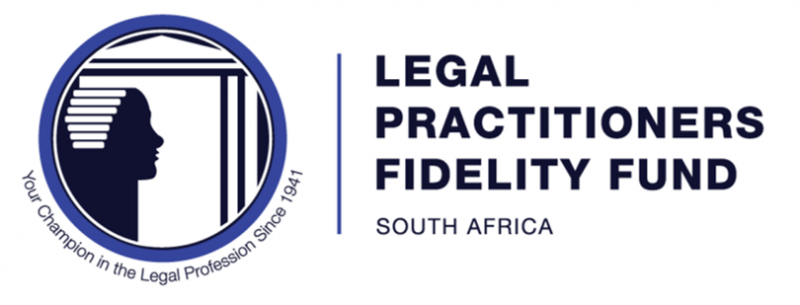CATEGORIES
- (3) Negotiating Tax Debt and Payment Arrangements with SARS
- (2)Account / Profile
- (541)Accounting
- (2)Accounting and Finance
- (23)Audit
- (156)Auditing and Assurance
- (1)Business
- (1)Business Management
- (3)Business Rescue
- (97)CIPC
- (7)Compliance
- (18)Ethics and Professionalism
- (46)Financial Reporting
- (1)Government Funding Applications
- (4)Guides
- (1)Individuals Tax
- (22)Law
- (37)Legal and Compliance
- (2)Management
- (5)Miscellaneous
- (25)Money Laundering
- (1)Personal & Professional Development
- (2)Practice Management
- (2)Professional Ethics
- (3)Public Sector
- (145)Regulatory Compliance and Legislation
- (41)SARS Issues
- (27)Sustainability Reporting
- (33)Tax
- (1)Tax Update
- (6)Technology
- (1)Wills, Estates & Trusts
- Show All
Trust Accounts: Legal Practitioners
- 27 July 2023
- Accounting
- South African Accounting Academy

Registered auditors are advised to take note of the following Legal Practitioners Fidelity Fund (LPFF) publications that are available on its website:
-
Legal Practitioners Paying Section 86(2) And (3) Trust Interest Due to the LPFF to the Incorrect Bank Accounts.
-
Some legal practitioners are still paying trust interest accrued on section 86(2) and (3) trust accounts to the incorrect bank accounts and the Legal Practitioners’ Fidelity Fund (LPFF) advises legal practitioners to use the correct banking details when paying trust interest accrued on section 86(2) and (3) trust accounts to the Fund.
-
-
List of banks that have entered into banking arrangements with the LPFF in terms of Section 63(1)(g) of the LPA.
-
The remaining chapters of the Legal Practice Act, No. 28 of 2014 (LPA) came into effect on 1 November 2018, and Legal Practitioners and all relevant stakeholders are reminded that trust accounts that are kept in terms of section 86 of the LPA must be held at a bank that has entered into a banking arrangement with the Legal Practitioners’ Fidelity Fund (LPFF) in terms of section 63(1)(g).
-
Legal practitioners should use one of the bank accounts listed in the table provided. for payment of trust interest earned from section 86(2) and section 86(3)
-
-
Payment of trust interest accrued on trust accounts held in terms of Section 86 of the Legal Practice Act No. 28 of 2014 (LPA) to the LPFF.
-
The purpose of this communication is to remind the Legal Practitioners, Registered Auditors, and all relevant stakeholders about the requirements of section 86 of the Legal Practice Act, No. 28 of 2014 (LPA) and The South African Legal Practice Council Rules made under the authority of sections 95(1), 95(3) and 109(2) of the LPA (LPC Rules), pertaining to payment of trust interest accrued on section 86 trust accounts
-
-
Payment of Unclaimed and Unknown Trust Monies in terms of Section 87(4) of the LPA.
-
The remaining Chapters of the Legal Practice Act, No. 28 of 2014 (LPA) came into effect on 1 November 2018, and the Legal Practitioners and all relevant stakeholders are reminded about the requirements of section 87(4)(a), which make it mandatory for Legal Practitioners to pay any unclaimed and unknown monies held in a trust account to the Legal Practitioners’ Fidelity Fund (LPFF)
-
-
Revised Application for Refund of Bank Charges and Audit Fees Form.
-
The purpose of this communication is to advise the Legal Practitioners, Registered Auditors, and all relevant stakeholders that the Application for refund of bank charges and audit fees form (form) was revised during 2022.
-
-
Registered auditors may submit an agreed-upon procedure report on work conducted on the application for refund of bank charges and audit fees.
-
The purpose of this communication is to advise Legal Practitioners, Auditors, and all relevant stakeholders of the upcoming format in which registered auditors will conduct an agreed-upon procedures engagement on the completed application for refund of bank charges and audit fees form, thereby aligning the auditor’s involvement in this form to the relevant standard of the International Auditing and Assurance Standards Board (IAASB).
-
Should you have any queries, please contact the LPFF directly.
Click here to download the 6 documents:
Relevance to Auditors, Independent Reviewers & Accountants:
-
The Legal Practitioners Act is yet another piece of legislation that your clients must comply with, and which you must assess compliance with. If they don’t comply with the relevant laws and regulations, you have certain reporting obligations in terms of NOCLAR (NOn-Compliance with Laws And Regulations) – this could include reporting to management, qualifying your audit opinion, reporting a Reportable Irregularity, etc.
-
As an auditor and independent reviewer, you need to consider and assess compliance with the LPA and Guidance documents issued by the LPFF.
-
As an accountant, you may need to advise your clients who are legal practitioners on compliance with the LPA and adherence to the latest guidelines issued by the LPFF.
-
As an assurance practitioner, you should ensure that you provide the correct revised AUP Report.
Relevance to Your Clients:
-
A legal practitioner has a duty to comply with the Legal Practitioners Act.
-
Your clients who are legal practitioners, must not only comply with the LPA, but they also have to adhere to the latest guidance documents issued by the LPFF.






